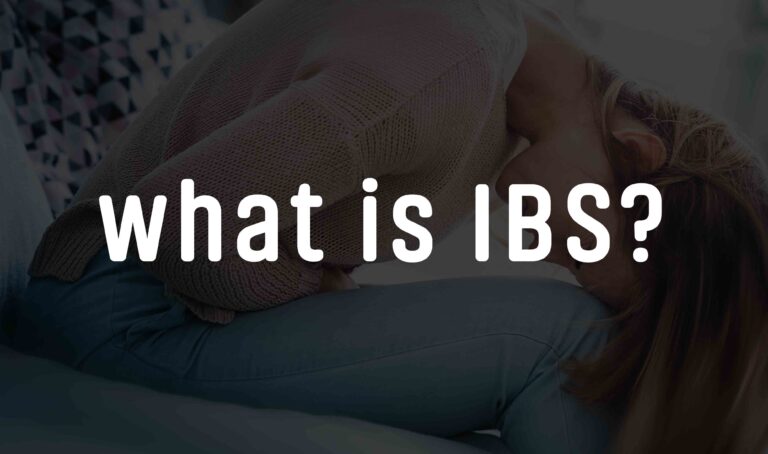What is Gut Dysbiosis?
Gut dysbiosis is, quite simply, an imbalance in your gut microbiome. Your gastrointestinal tract is home to trillions of microorganisms, including bacteria, fungi, and viruses. In a healthy state (called “symbiosis”), these microbes live in a balanced, diverse community that works to your benefit—helping with digestion, supporting your immune system, and even producing essential vitamins.
3 different part of your GI track, where it can happen
- The upper GI tract, basically from your mouth to the oesophagus
- Middle of your gut, your stomach
- Lower GI Track, covering your small & large intestine
Common Symptoms of gut dysbiosis
Because the gut is so important to your overall health, an imbalance can cause a wide range of both digestive and non-digestive symptoms:
- Digestive problems: bloating, excessive gas, stomach pain, cramps, constipation, or diarrhea.
- Food intolerances: New or worsening sensitivities to foods you used to eat without problems.
- Systemic symptoms: fatigue, brain fog, skin problems (such as acne, eczema, or psoriasis), joint pain, and mood changes (such as anxiety or depression).
- Weak immunity: Frequent colds or infections.
What’s Messing With Your Gut? The Real Causes of Dysbiosis
Think of your gut microbiome as a bustling, vibrant city inside you, full of trillions of tiny residents – bacteria, fungi, and even viruses. When everyone’s getting along and doing their job, life is great! But this delicate ecosystem is pretty sensitive, and lots of things can throw it completely out of whack.
Here are the usual suspects that can cause your gut “city” to fall into chaos:
- Your Plate Plays a HUGE Role: What you eat literally feeds your gut residents. If your diet is packed with sugary treats, processed snacks, and artificial stuff, you’re essentially throwing a party for the bad guys, letting them take over. Meanwhile, the beneficial microbes that thrive on fiber-rich fruits and vegetables are left starving and outnumbered.
- Medications – Sometimes Necessary, Often Disruptive: We all appreciate antibiotics when we need them, but they’re like a carpet bomb for your gut. They don’t just kill the bad bacteria; they wipe out tons of your good ones too, leaving a huge void. Other common meds, like those for heartburn (PPIs) or steroids, can also unintentionally mess with that delicate balance.
- Stress – Your Gut Feels It Too! That knot in your stomach when you’re stressed? It’s not just a feeling. Chronic stress, whether it stems from work, relationships, or constant worry, actually impacts your gut lining and creates an environment where beneficial microbes struggle to survive.
- Uninvited Guests (Infections): A nasty bout of food poisoning, or an actual gut infection like C. difficile or a parasite, can completely remodel your gut community. Sometimes, the changes are long-lasting even after the infection is gone.
- Everyday Habits (The Silent Saboteurs): Things we do every day, like not getting enough sleep, enjoying too much alcohol, or smoking, might seem unrelated, but they significantly contribute to making your gut environment less friendly for the good bacteria and more welcoming to the bad.
Essentially, it’s about giving your gut the right conditions to thrive. When these factors stack up, your gut can’t do its job properly, and that’s when you start feeling the effects of gut dysbiosis!
Why Does It Matter?
Gut dysbiosis isn’t just a minor digestive inconvenience. This imbalance is now understood to be a root cause or major contributing factor in many chronic health conditions, including:
- Irritable Bowel Syndrome (IBS)
- Inflammatory Bowel Disease (IBD), such as Crohn’s disease and ulcerative colitis
- SIBO (Small Intestinal Bacterial Overgrowth)
- Autoimmune conditions (like rheumatoid arthritis or Hashimoto’s)
- Metabolic issues (like obesity and Type 2 diabetes)
- Mental health disorders (due to the strong gut-brain connection)
Treatment of Gut Dysbiosis
- Remove the Bad Stuff: Eliminate inflammatory foods (like processed foods, sugar, common allergens), harmful microbes (parasites, bad bacteria, yeast) with targeted treatments, and reduce exposure to toxins and stress.
- Maintain the pH level of your gut lining: Simply having a more alkaline diet will help you to maintain your gut pH level.
- Reinoculated with Good Bacteria: for gaining good gut bacteria, you must try easy probiotics, where butter milk, kefir or kanji will make some soothing effect. Indian Dhosa is another elixir for enhancing the good gut bacteria.
- Repair the Gut Lining: Provide essential nutrients like L-Glutamine, collagen, zinc, and soothing herbs to help heal and strengthen a damaged intestinal barrier.

- Relax and see the magic: Tie a particular time for yourself and relax. Yogic breathwork (Pranayama) will help you. Bhrahmari Pranayam is very effective for your me relax time.






